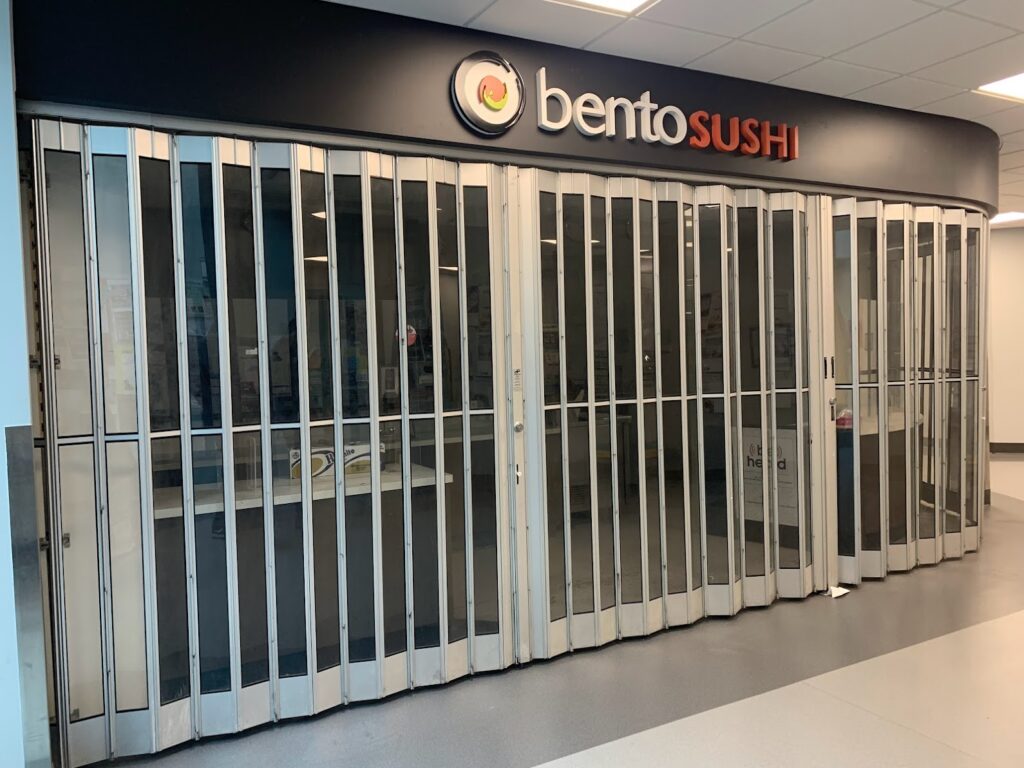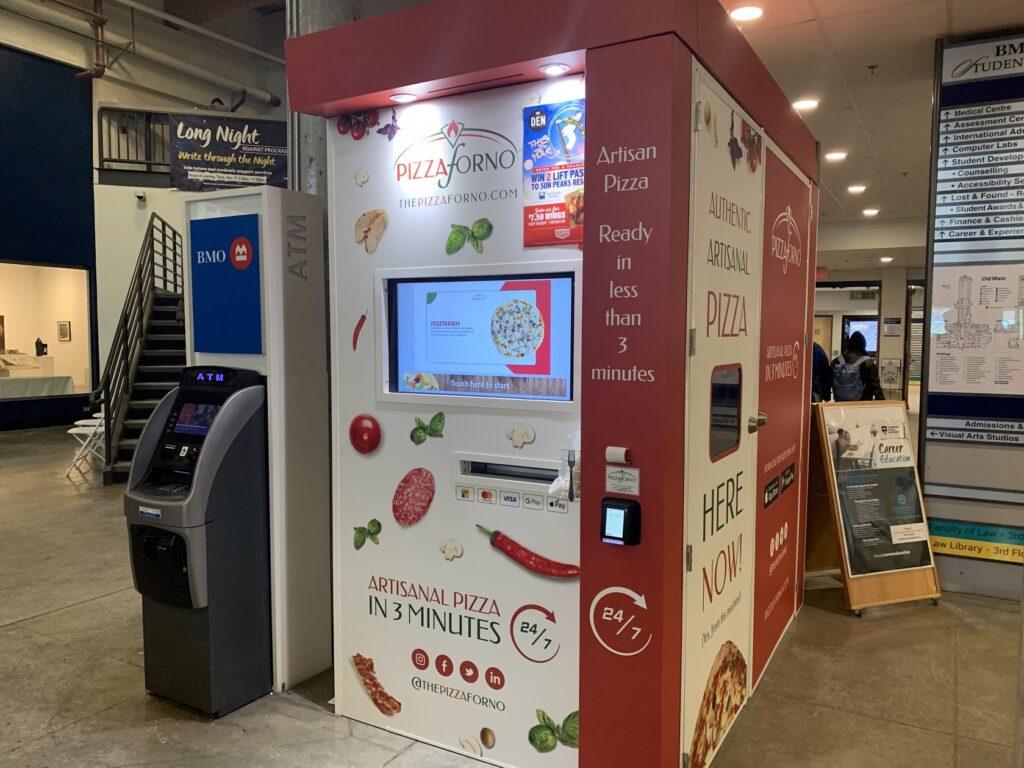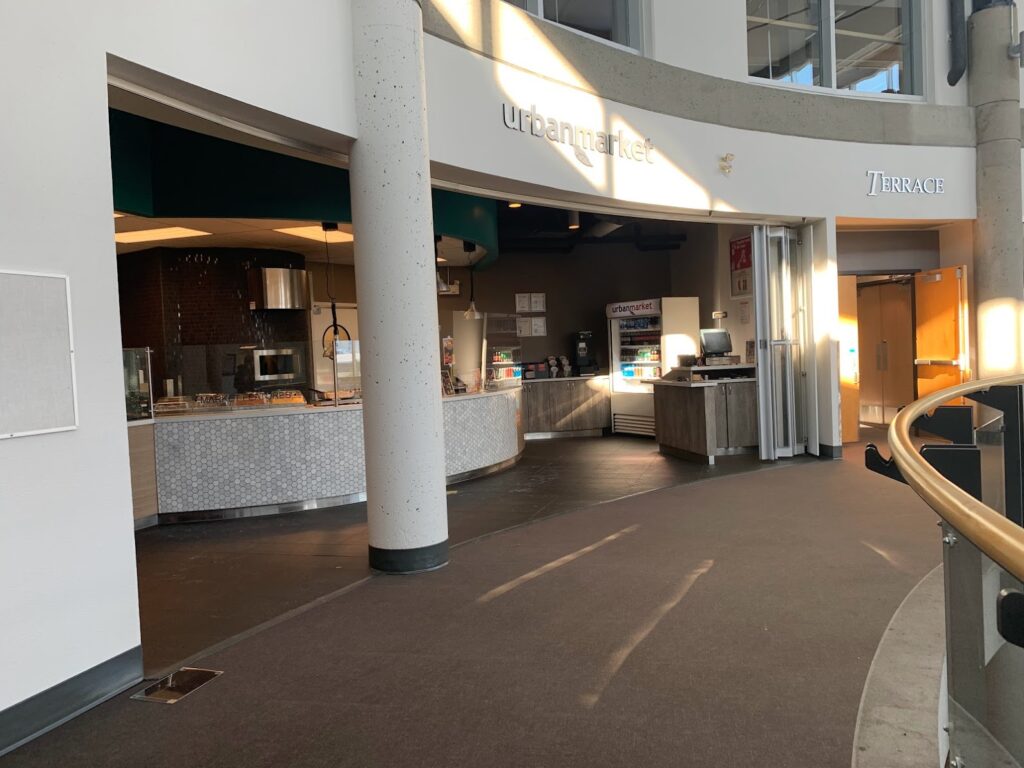
Food services at Thompson Rivers University (TRU) have room for improvement, says Nachiket Desai, the president of the TRU student union (TRUSU) university affairs committee.
“I think there should be more healthy options apart from what we have on campus,” said Desai over email.
Desai’s concerns come despite the arrival of several new dining options at TRU in 2022. These include the Subway in the lobby of the International Building and the PizzaForno vending machine in Old Main. Urban Market in the Campus Activity Center was also revamped before the fall semester as Afrofusion, with a menu focusing on African-Western hybrid food.

Changing the menu
According to TRUSU’s website, the university affairs committee has conducted advocacy regarding food services in the past. Desai, who is a TRU student that was elected to his current position, said TRUSU has limited control over food on campus, however.
“TRUSU only manages the Common Grounds coffee shop and all the rest of them are managed by Aramark,” said Desai. “Since we have the only student owned and run coffee shop, we can only plan for that.”
Most food vendors at TRU are managed by Aramark Incorporated, which has been a partner of TRU since 2003. No representatives of Aramark or TRU Food Services, the TRU department that works with Aramark, responded to requests for comment.
While Desai said that TRUSU has no direct influence over Aramark’s operations, he said the union is still in a position to lobby for students concerned about food services at TRU. “If many students have specific complaints, then the university affairs committee will contact the university and we will try to find a solution,” he said.
On November 7, 2022, the Thompson Rivers University Student Union (TRUSU) organized samosa sales on campus. Desai mentioned the samosa event as one of several actions taken by TRUSU to improve student food services on campus.
“Additionally, we have [a] chefs package once in a while where we have all the ingredients for a dish and a recipe leaflet that we hand over to students for free,” he said.
Another service provided by TRUSU that Desai pointed to was the Emergency Food Security Program for students described by the program’s web page as “experiencing food insecurity.” Eligibility for the program is determined by financial need, with successful applicants receiving gift cards to local grocery stores.
During university budget consultations ahead of the 2018/2019 fiscal year, TRUSU made several food-related recommendations which TRU publicly responded to. TRUSU’s recommendations included calls for improved service, accessibility, and increased competition among food outlets.
Desai said that any future campaigns by TRUSU will be listed on the organization’s website.
Digging in

Henry Stagg-Tanner, a third-year English major at TRU, was a regular customer at Urban Market during the fall semester of 2021. While Stagg-Tanner’s favourite dish at the time was Urban Market’s pizza, he said Urban Market remains his preferred destination despite the conversion to Afrofusion.
“Right now, I gotta say I do really enjoy Afrofusion,” said Stagg-Tanner. “I’d say Afrofusion, in terms of the quality of the food, is definitely number one.”
Like Desai, Stagg-Tanner expressed reservations about the nutritional quality of TRU’s food offerings. However, his biggest concern was affordability. “Honestly, I’d just like to see a lot more diversity in terms of what’s offered as well as a bit more of an emphasis on food affordability towards students,” he said.
“I understand that maybe one side of the argument for bringing chain restaurants like Tim Hortons is that the food can be slightly more affordable,” said Stagg-Tanner. “You know, Tim Hortons coffee is quite cheap, as are a lot of their smaller snacks.”
A medium sized coffee at Tim Hortons costs $1.96, while a medium coffee at Common Grounds, which Desai said uses a non-profit business model, is $3.50. For Stagg-Tanner, however, the value of an independent coffee shop like Common Grounds isn’t in the pricing.
“I’m always personally a bigger advocate for student run or small business places,” said Stagg-Tanner. “I think Common Grounds is great, I think that it being run by students is great. I think that really adds a lot to campus.”

richard
Who wrote this story?
cooperj173
Richard, I have marked it as being written by Zack